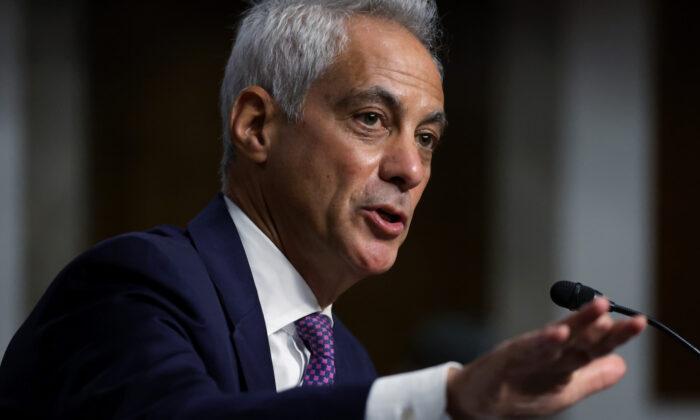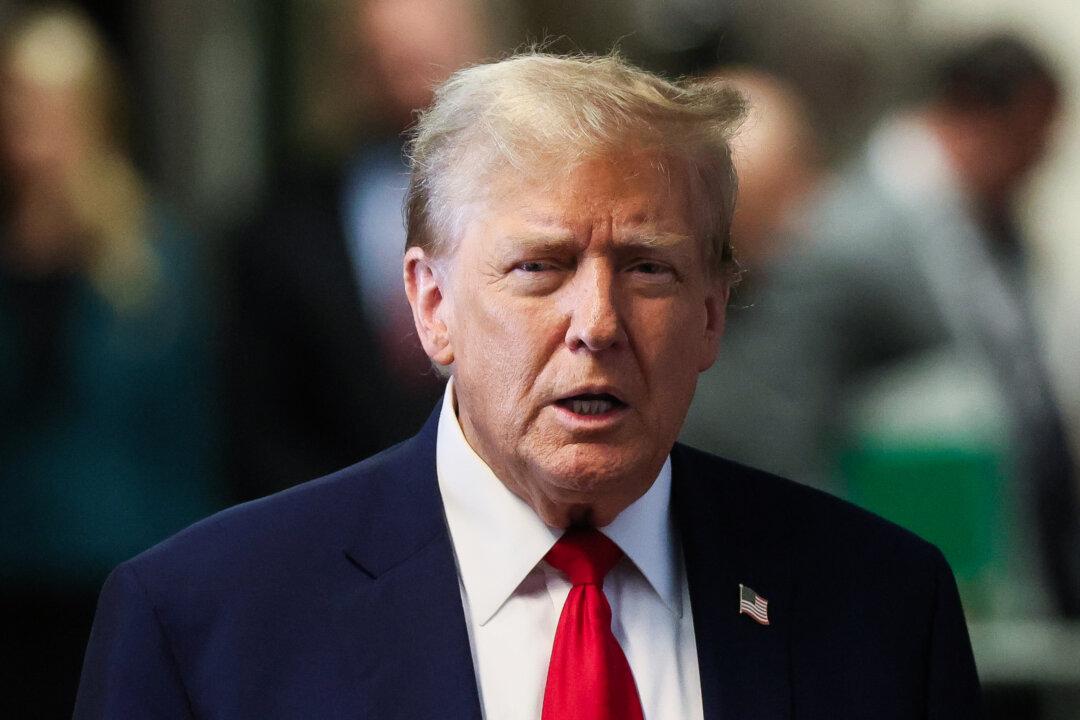The world’s leading economies should set up an “anti-coercion coalition” to combat Beijing’s persistent use of economic coercion to achieve its political goals, the U.S. ambassador of Japan said on March 27.
“It is the use of economic tools, whether that’s embargoes, tariffs, and other types of tools, to politically target a country that you disagree with and try to coerce them into changing their political stance and their political independence,” he added.
Emanuel said that Beijing is a “persistent purveyor” of such tools, and only through coordinated response by countries can such actions be checked.
“If the world does not organize against economic coercion, Beijing will continue to prey on other countries and their economies, large or small, developed or developing, near or far,” he said.
“The world today must develop a comprehensive collective response to combat economic coercion equal to the collective comprehensive actions that China has taken,” the U.S. envoy added.
In 2012, Beijing quarantined Philippine fruit exports over a territorial dispute in the South China Sea.
South Korea suffered business boycotts from Chinese consumers and tourists when it installed a U.S. missile defense system in 2016.
When Australia called for an international inquiry into the origins of the COVID-19 pandemic, the Chinese Communist Party (CCP) restricted Australian exports of coal, barley, beef, copper, wheat, and a range of other products.
“We need a policy response to engage and win this battle,” he said. “Collective groupings, like the G7 or existing trade agreements, help countries resist China and survive the economic consequences.”
The CCP also targeted multinational corporations that heavily rely on manufacturing in China and the Chinese market.
Emanuel said that Beijing’s economic tools include restrictions in trade, investment, and tourism, as well as boycotts, state threats, and intellectual property theft.
China Took Advantage of WTO
Experts said that China has not lived up to its commitments to fair trade in the past two decades and has little will to do so, despite the world looking to its transition toward free-market capitalism.“China has never really observed the rules of the World Trade Organization [WTO]. It has taken advantage of the World Trade Organization,” Clyde Prestowitz, president and founder of the Economic Strategy Institute, told the Chinese language edition of The Epoch Times in 2021. Prestowitz is also the author of “The World Turned Upside Down: America, China, and the Struggle for Global Leadership.”
“If you just look at what China has been doing in its trade with Australia, it’s actually, sadly, halting Australian imports,” he said. “Of course, China is making some excuses.”
“Today, those challenges remain before us,” he said.
“Convincing friendly governments to encourage their companies to leave China … while cutting China’s exports, it would also send a solid message to China—that China will either have to change—or go it alone,” China economic analyst Antonio Graceffo told the Chinese language edition of The Epoch Times.






Friends Read Free